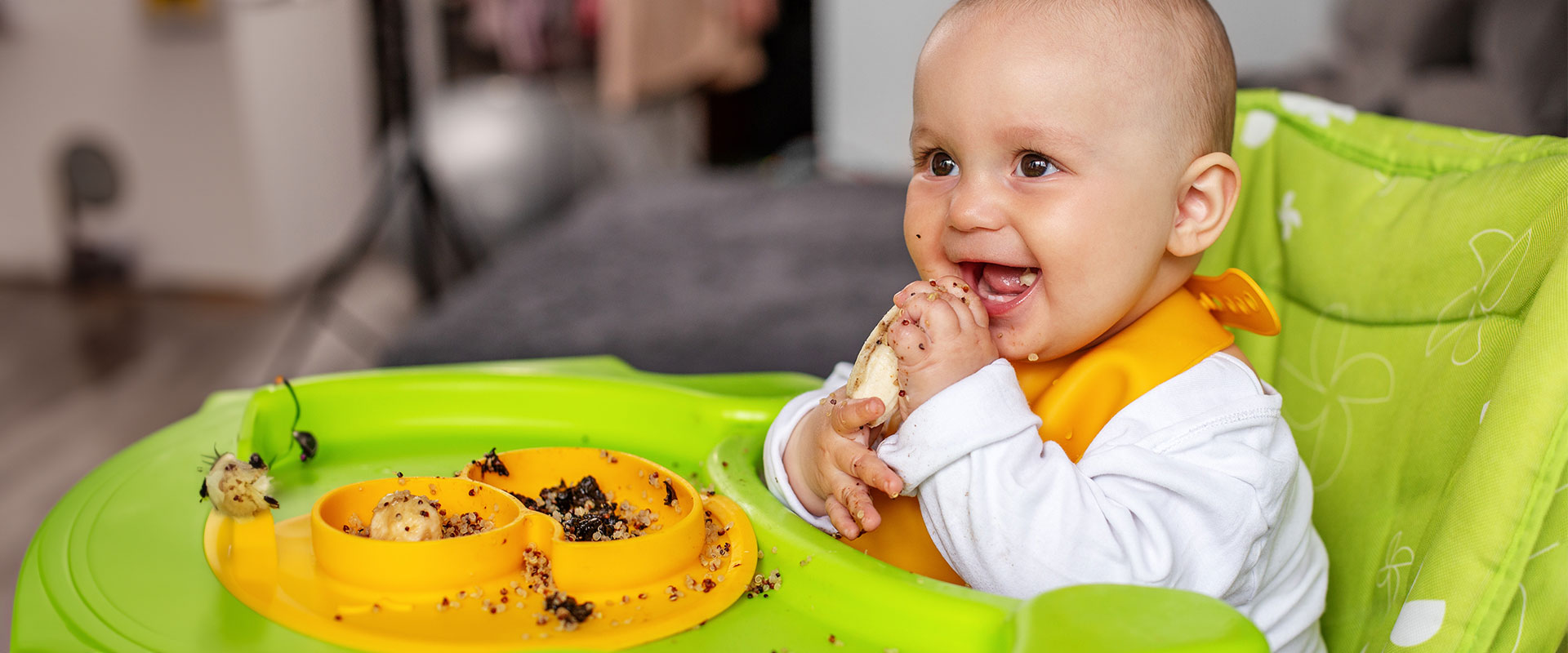10 Top Tips on Weaning your Baby

So, you're at the stage where you want to begin introducing your baby to the wonderful world of food... but where do you start?
We asked parenting author Annabel Karmel to delve into her 25+ years' experience and share some weaning advice with you.
"Just like many mums, I didn't quite know where to start when I first began weaning my son. The process felt quite daunting, but I decided to roll up my sleeves and get experimenting in the kitchen," says Annabel.
"All three of my children were incredibly fussy eaters. But, I'm glad they were, as I may not have found a career path that I love and adore to this day. Back then, the only cookbooks I could find contained quite bland recipes, so I started adapting all the healthy foods we ate as a family into things my children could eat. When I shared the recipes at my son's playgroup, they went down a treat. This resulted in me writing my first book, the Complete Baby & Toddler Meal Planner.
It provided parents with a step-by-step guide through the whole process of weaning - from nutrition during pregnancy and weaning, through to feeding fussy eaters. It's become a trusted port of call for many parents who want to give their growing family the very best start in life."
Baby Weaning Tips
Here are some of Annabel's top tips on weaning...
- Make sure your baby is ready to wean. Pushing a young, reluctant baby will make the start of the weaning process upsetting for you both. The general rule is that babies should be weaned from around six months old.
- Babies sometimes find the process a little clinical and become upset when mealtimes no longer involve the comfort of sucking milk. When offering your baby their very first taste or two you may find it easier to hold them on your lap, as this will help them feel loved and secure.
- When babies feed from the breast or a bottle, they instinctively push their tongue forwards. Now your baby needs to learn to keep their tongue at the back of their mouth. If they can't get on with a spoon, try dipping a clean finger in the puree and let them suck your finger for the first few mouthfuls.
- It's a good idea to choose a spot where you'll be regularly feeding your baby, so that they begin to associate it with mealtimes. The kitchen is probably best, as they're bound to make a considerable mess for the first few months - or even years!
- The first time you feed your baby solids can be a nerve-wracking experience. So, find a relaxing, quiet place with no distractions and take it slowly, following your baby's pace. Every baby is different; some jump at the opportunity of trying new tastes and textures while others may be more reluctant, but both of you will soon get the hang of it and enjoy trying new flavours.
- Laugh, smile, sing and taste your baby's food at mealtimes - they'll want to join in the fun by copying you and eating it themselves.
- Avoid feeding your baby when they're tired, irritable, or very hungry. At these times, they'll want one thing only - milk.
- Don't get too hung up about portion sizes or nutrients. If the food is wholesome and fresh and they're taking a little, you've done well.
- Don't try to compare your baby with others. All babies develop at their own speed and take to different foods at different stages. It is no reflection on their intelligence or abilities.
- First foods should be simple, easy to digest, and unlikely to provoke an allergic reaction. Start with a single ingredient, ideally a fruit or vegetable. Root vegetables like carrots, sweet potato and butternut squash are very popular first foods; they have a naturally sweet flavour and can easily be puréed to a smooth texture. As a tip, try mixing them with a little breast or formula milk to ease the transition.





